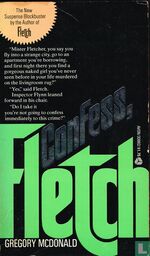
The author wastes no time in holding his protagonist’s feet to the fire. On Page One, Fletch arrives in Boston from Italy and finds the body of an attractive but dead young woman in the apartment he has been loaned for his visit. The victim was a stewardess from the airline Fletch had used and the murder weapon turns out to be a whiskey bottle, one that sports Fletch’s fingerprints due to a post-discovery drink as he waited for the police. The journalist, incidentally, uses the precinct’s business number to report the murder, much to the desk sergeant’s irritation. Their exchange offers an excellent example of why McDonald’s writing is so consistently enjoyable. Fletch, who should be feeling nervous as a murder suspect, shows a likeable grace and humor under pressure:
“This is the Police Business phone.”
“Isn’t murder police business?”
“You’re supposed to call Emergency with a murder.”
“I think the emergency is over.”
“I mean, I don’t even have a tape recorder on this phone.”
“So talk to your boss. Make a recommendation.”
As it turns out, the body in the apartment is just the beginning. I.M. Fletcher has a fiancée back in Italy, Angela, and her father, Count Clementi De Grassi, has been abducted and held for ransom by kidnappers. Months earlier, the family’s art collection was stolen, and Fletch has been tasked with trying to track down the missing paintings. One artwork, a presumed Picasso nicknamed Vino, Viola, Mademoiselle (“What else would you call it?” asks Fletch) has shown up for sale through a Boston broker named Ronald Horan, and this prompts Fletch to investigate whether the art collection is intact and who might be holding the paintings.
Enter Boston police inspector Francis Xavier Flynn, a deceptively benign man with the Irish gift for turning a phrase and a keen interest in others, both the guilty and the relatively innocent. Flynn is a wonderful creation, his quietly poetic outlook on life serving as a perfect complement to Fletch’s more obviously ironic worldview. Flynn tows around a long-suffering sergeant he calls Grover (but whose name is not Grover) and asks Fletch, gently but persistently, whether he is ready to confess to Ruth Fryer’s murder. And yet Flynn doesn’t arrest I.M. Fletcher, even though the evidence is stacked against him. A few too many details – not least of which being Fletch’s counterintuitive actions if he were actually a murderer – just don’t add up.
Starting with a book called Flynn published in 1977, McDonald featured Francis Xavier in four stories of his own, and I will certainly track down these titles and enjoy the continuing adventures of this unique Boston homicide detective. It’s not just the droll dialogue that makes F.X. Flynn so memorable; even as a supporting player here, the author gives his humble cop opportunities to surprise and charm the reader. In Confess, Fletch, two scenes stand out as moments that humanize and define a character who, in less artful hands, could have easily been a tired Irish stereotype. Frank’s surprising story of his teenage years spent as an enthusiastic youth in Nazi Germany and the charming moment when Fletch attends a family music concert in the Flynn living room are true highlights, the scenes atypical perhaps but organic and perfectly pitched.
(One exchange I especially love occurs between Frank and his son after completing the rather arduous string quartet: “Da?” Todd said. “That should never have been in anything other than F Major.” “We all make mistakes,” said Flynn. “Even Beethoven. We all have our temporary madnesses.”)
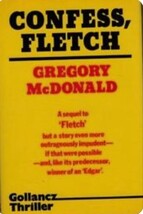
Indeed, the Fletch books are often problematical regarding the portrayal of women characters, whether it is the two alimony-hungry ex-wives he is constantly dodging in the début book or the protagonist’s willingness to use and discard a woman for a newspaper story, as he confesses to here in Confess, Fletch. Gregory McDonald may be writing characters for a male-driven (and presumably male-reading) mid-‘70s era, but the stereotyping is regrettable, considering the author is certainly capable of creating surprising people when he wants to. There is one female in the book who is written with sympathy and insight; surprisingly, it is Lucy Connors, the ex-wife of the man who owns the Boston apartment. Lucy recognized her lesbianism only after their disastrous marriage, and Fletch’s interview with her and her partner – in the guise of writing a discreet article for a tony magazine detailing her awakening while keeping her identity a secret – is handled perceptively. So the author can elevate women past comic harpies when he chooses to.
As I write this book review, the Internet tells me that a film adaptation of Confess, Fletch is in post-production and likely due out later this year. It is directed by Greg Mottola and will star John Hamm of Mad Men fame as the title character. The book offers an excellent story ready for the screen, so as long as the adaptation isn’t messed up thoroughly – with Hollywood, one never knows – it should be an enjoyable incarnation. Speaking of adapting the books, Chevy Chase was a logical choice for the pair of mid-‘80s movies, although the Fletch of McDonald’s stories is less shticky and more rounded (and also a more interesting person to be around). As for John Hamm, he seems miscast to me. At one time, Jason Sudeikis was rumored for the role, and I think he would have carried the perfect mix of general handsomeness, ingrained quick-wittedness, and most importantly a talent for comic line deliveries that would have fit Mr. I.M. Fletcher like a glove.
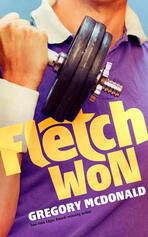
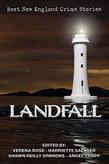
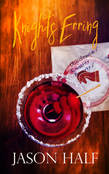
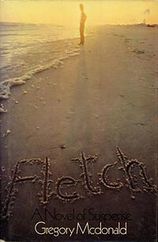
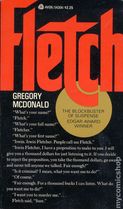
 RSS Feed
RSS Feed